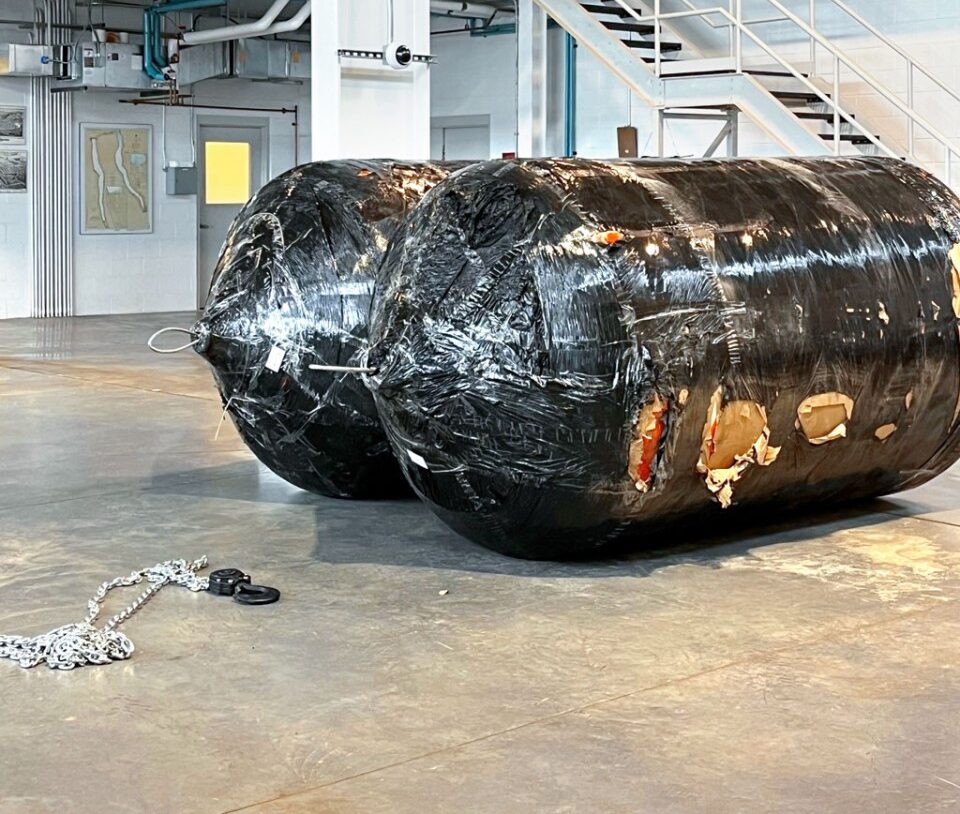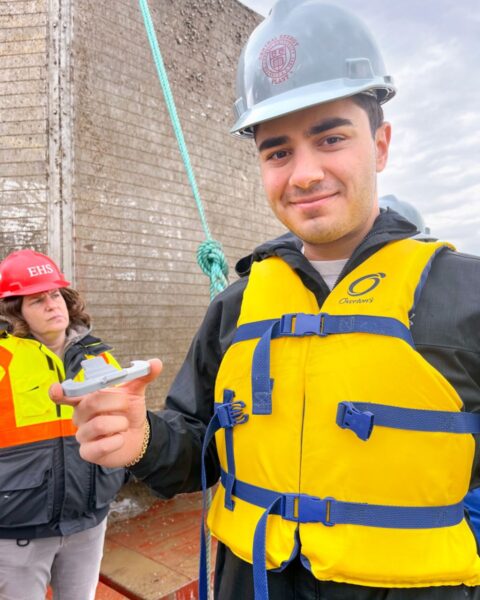Underwater Engineering Efforts for Lake Source Cooling System

The Lake Source Cooling (LSC) system at Cornell University relies on the icy depths of Cayuga Lake to provide sustainable cooling solutions. However, invasive mussels pose a threat to the system’s efficiency, prompting innovative engineering interventions.
Maintaining the LSC system involves intricate underwater operations, such as cleaning intake screens and removing debris from pipes. These tasks require precision and efficiency to ensure uninterrupted cooling performance.
Innovative Engineering Solutions
Cornell engineers, in collaboration with students and cutting-edge technology, have developed creative solutions to address maintenance challenges. Rapid prototyping and 3D printing have enabled the fabrication of customized components for underwater applications.
Case Study: Octagonal Screen Cleaning

Mark Tarazi ’24, an engineering student who manages Cornell’s Rapid Prototyping Lab, holds the 3D-printed piece he made on the fly to help engineers perform a scrubbing to remove invasive mussels from Cornell’s Lake Source Cooling system.
Cleaning the octagonal screen, located 250 feet below Cayuga Lake’s surface, presented logistical challenges. Mark Tarazi, a mechanical engineering student managing Cornell’s Rapid Prototyping Lab, designed a tab made of an opaque thermoplastic for the shackle to nestle into, ensuring precise alignment of the cleaning equipment.
The LSC system has significantly reduced electricity usage and costs for Cornell University. However, periodic maintenance, such as “pigging” operations to remove mussels from pipes, is essential to maintain optimal performance and efficiency.
Environmental Considerations and Cost Analysis
Despite the substantial costs associated with maintenance projects, the long-term benefits of preserving the LSC system’s efficiency justify the investment. Sustainable practices and technological innovations contribute to minimizing environmental impact while ensuring reliable cooling solutions.
Ongoing efforts to monitor system performance and mitigate fouling will inform future maintenance strategies. By leveraging engineering expertise and collaborative partnerships, Cornell remains committed to sustainable energy solutions and environmental stewardship.
